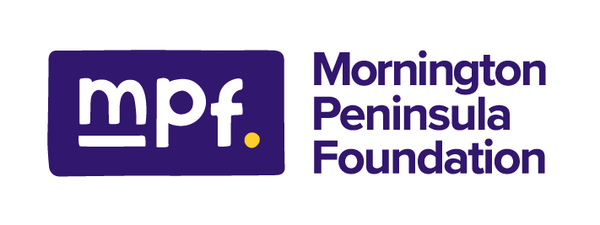Implementing the science of learning in real classrooms is rarely tidy or linear. It’s nuanced, human, and sometimes challenging: especially when it collides with years of established practice, staffing churn, and the daily complexity of school life. That’s why the role of MPF’s Primary School Improvement Coordinator, Nic Esler, has become such a critical hinge in the work of embedding effective, sustained change across the cluster.
“Every school is different, and the work bends to the need,” Nic says. “Some days I’m advocating for teachers; other days I’m helping principals pace change so it lands and lasts.”
Nic supports seven primary schools across the Mornington Peninsula Learning Guarantee, from “light touch” sites to those needing intensive, weekly on-the-ground partnership. The starting point in every context is the same: get the data straight, understand where the gaps are - particularly in early decoding - and build coherent, consistent intervention and instruction that reflects that reality.
“Data has been at the forefront of every conversation,” she explains. “In some schools, there was no consistent F–6 intervention model. Teachers didn’t know what was happening in one another’s grades. We’ve had to build that clarity, piece by piece. Sometimes it’s shifting a literacy block one component at a time, nailing a daily review or fluency routine before adding the next layer rather than throwing everything out and starting again. That kind of pacing, that’s where the trust and the real work lives.”
The trust Nic brings isn’t theoretical. It’s rooted in experience. Before stepping into the cluster-wide role, she spent over a decade at Tyabb Railway Station Primary School wearing many hats, from classroom teacher to wellbeing lead, to literacy lead and acting learning specialist. She trialled structured literacy approaches in her own classroom before advocating for them with colleagues.
“Building trust is everything,” Nic reflects. “When I go into a school I don’t start with big jargon. I can say, ‘I’ve tried this. This worked. This didn’t.’ That makes the conversations real.”
There are some hard conversations that are had. In schools where long-tenured teachers are asked to change deeply ingrained practice, resistance often has a human face: fear of change, guilt that previous approaches may have let students slip through, uncertainty about what “doing it differently” actually looks like. Nic describes the “backlash” in some settings not as failure, but as a signal of how much is held in people’s identity as educators.
“I tell them when I don’t have an answer to something they want to know more about,” she says. “Sometimes they’re too emotional to talk. I’ll do the research and come back. It’s about being honest and respecting people’s experience, so progress isn’t derailed by overwhelm.”
The coaching dynamic extends beyond classroom teachers. Nic is increasingly working side by side with assistant principals and literacy leaders, roles she admits can trigger imposter syndrome, especially when sitting with school leadership. “But then I remember I’ve seen what works across contexts. I can say, ‘I’ve seen this shift in another school; maybe we can adapt it here.’ That shared knowledge replaces pure trial and error with informed iteration.”
One of the unexpected and energising outcomes of the cluster work has been the emergence of authentic collaboration between schools, something Nic says she’s never experienced to this extent in her ten years of teaching. The regular, informal gatherings of literacy leaders, the creation of the Foundation Teachers Network, and teachers seeking one another out to share what’s worked are all ripples of a culture she’s helping cultivate.
“We’re free of competition that often exists between schools,” she says. “Schools don’t have to hide their ideas because of enrolment pressures or comparative data angst. They’re actually learning from each other. I’ve had teachers say, ‘I tried what you suggested from another school and it’s working.’ That connection, that open sharing, that’s huge.”
Progress for the most vulnerable students can be slow, and systemic challenges like the difficulty of securing assessments or funding for students with complex needs remain. But Nic is clear-eyed and hopeful. “We might not move every student from red to green in six months, but if we see growth if their fluency or accuracy improves that’s impact,” she says. “We document it, we hand that on to the next setting, and we keep advocating for the supports they need whether that’s further assessment, allied health involvement, or family engagement. The pathway isn’t straightforward. There’s waitlist friction, family fear of external agencies, eligibility hurdles... but we keep moving pieces where we can.”
“It’s the nuance that makes the difference,” says Nic of the nature of her work. “Policy might mandate phonics, but implementation lives in the relationships, the pacing decisions, the way a literacy block is unpicked and rebuilt. I get to see around corners because I’ve watched other schools try, adjust, and succeed. That shared wisdom is what turns good intentions into classroom reality.”
For donors and partners watching the transformation unfold across the MPF cluster, Nic’s work is the steady link ensuring that investments in the science of learning land with fidelity and stay in the hands of teachers who feel seen, supported, and capable.
The Primary School Improvement Coordinator role is made possible by generous MPF donor support.
